- Links
- Home
- About
- Plan
- Learn
- Explore
- UNESCO
- Events


Geoparque Algarvensis
The Geopark Algarvensis is a territorial area with well defined boundaries, which has a geological heritage of great importance at both national and international level, combining a strategy of geoconservation and a set of policies of education and environmental awareness, the promotion of sustainable socio-economic development based on geotourism activities, involving local communities, contributing to the enhancement and promotion of local products.
Made official in 2019 as an aspiring UNESCO Global Geopark with the UNESCO National Commission, it is an observer member of the Portuguese Geoparks Forum, having immediately initiated work to raise awareness among local populations about the Geopark concept throughout its territory, and is preparing the dossier for formalising its application to the UNESCO Global Geoparks Network.
The Geopark Algarvensis is an identity territory, inspiring, transforming, of belonging, that invites to visit, settle and invest, in a conscious way and in harmony with the present natural and cultural values. It is, in short, a happy way of being and living the territory, bequeathing it to future generations!
To contribute to greater social and territorial cohesion in the municipalities of Loulé, Silves and Albufeira, through a policy of territory valorisation based on the UNESCO Geopark concept.
To promote the protection, enhancement and dynamism of the natural and cultural heritage, highlighting the geological heritage, through the creation of scientific and educational knowledge, in order to provide socio-economic and sustainable development of the territory, the settlement of people and the promotion of their quality of life.
The Geopark Algarvensis aims to be a link for a greater appreciation and promotion of the local and regional heritage at an international level, intending above all to contribute to the preservation of its geological and cultural heritage, as well as to create the conditions for a greater appreciation of its territory.
Team
With a multidisciplinary team, the Algarvensis Geopark focuses its work on sustainable development of its territories, based on a green and socially balanced economy, as well as on environmental and heritage education.
It relies on the technical team of the AGA -Algarvensis Geopark Association and the technical team of the municipalities that make up the Algarvensis territory, led by their coordinators.
Technical Team - AGA -Algarvensis Geopark Association:
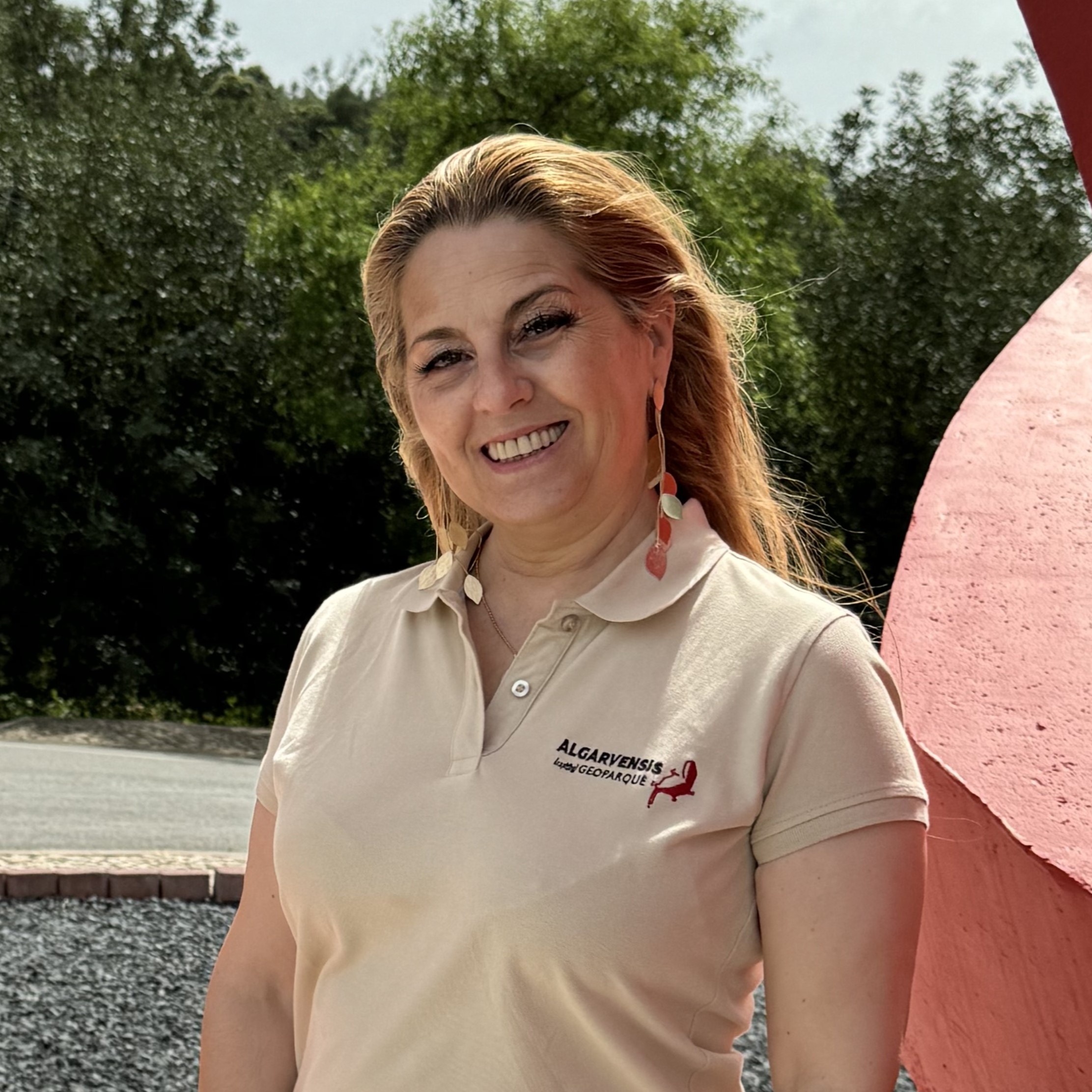
Elizabeth Silva . Executive Coordinator / Ph.D in Geography & Territorial Planning (Areas of specialization: Geosciences, Environment and Natural Resources) / Research areas: Sustainable Development, Agenda 2030- SDGs, Education, Oceans, Water, Climate Change and Biosphere Reserves.
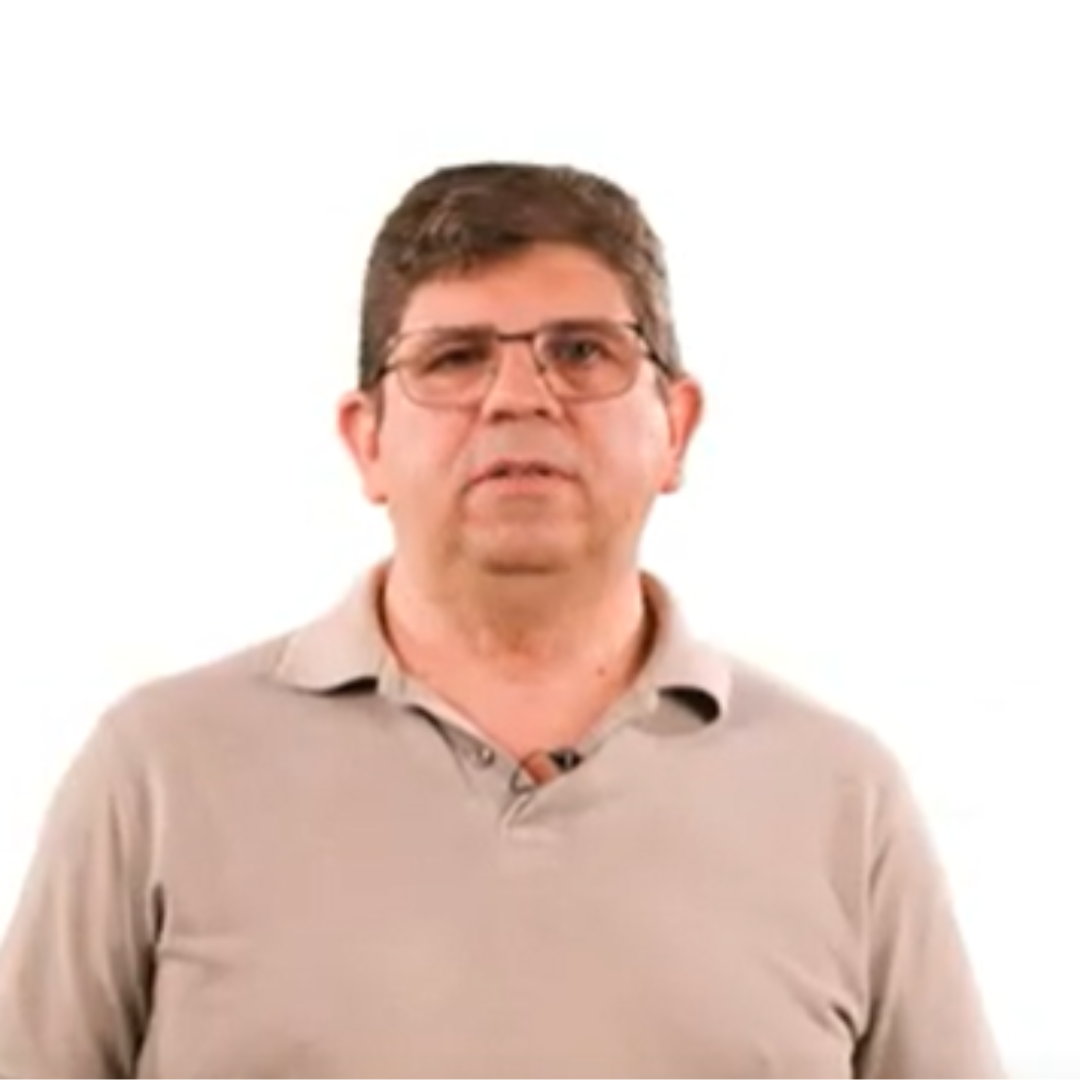
Paulo Fernandes . Scientific Coordinator / Ph.D in Geology (Areas of specialization: Stratigraphy and Palynology) / Geologist / Professor at the University of the Algarve (UALG) / Researcher at the Marine and Environmental Research Centre (CIMA-UALG - Research areas: stratigraphy, sedimentology, geochemistry, palynology, organic petrology and thermochronology, in Portugal, Spain and Mozambique) / Founding member of the Association for the Dissemination and Defense of the Geological Heritage of the Alentejo and Algarve.
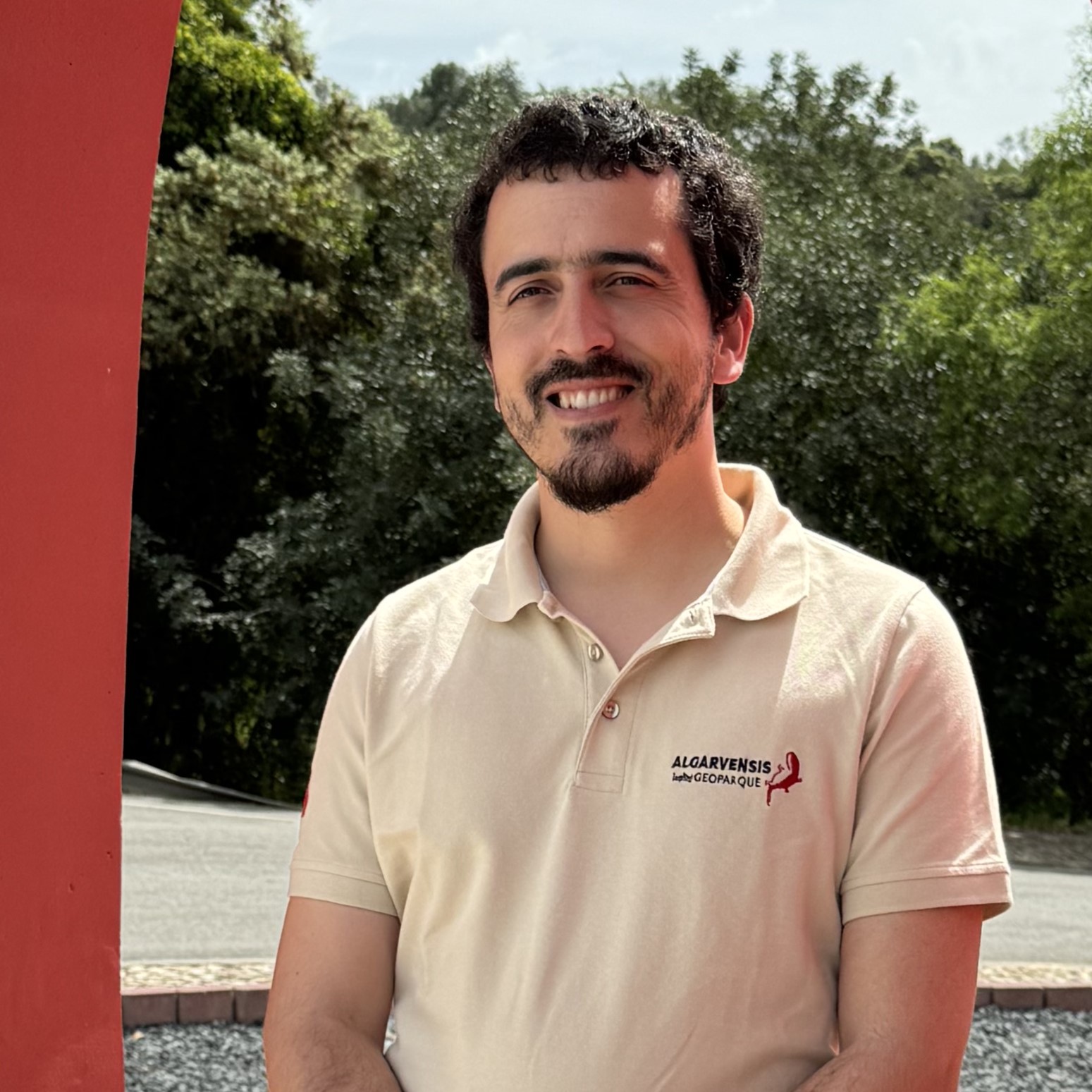
Hugo Campos . Paleontologist / Geological Engineer / Education / Science Communication / Geotourism / Areas of specialization: Vertebrate Paleontology of the Triassic of the Algarve.
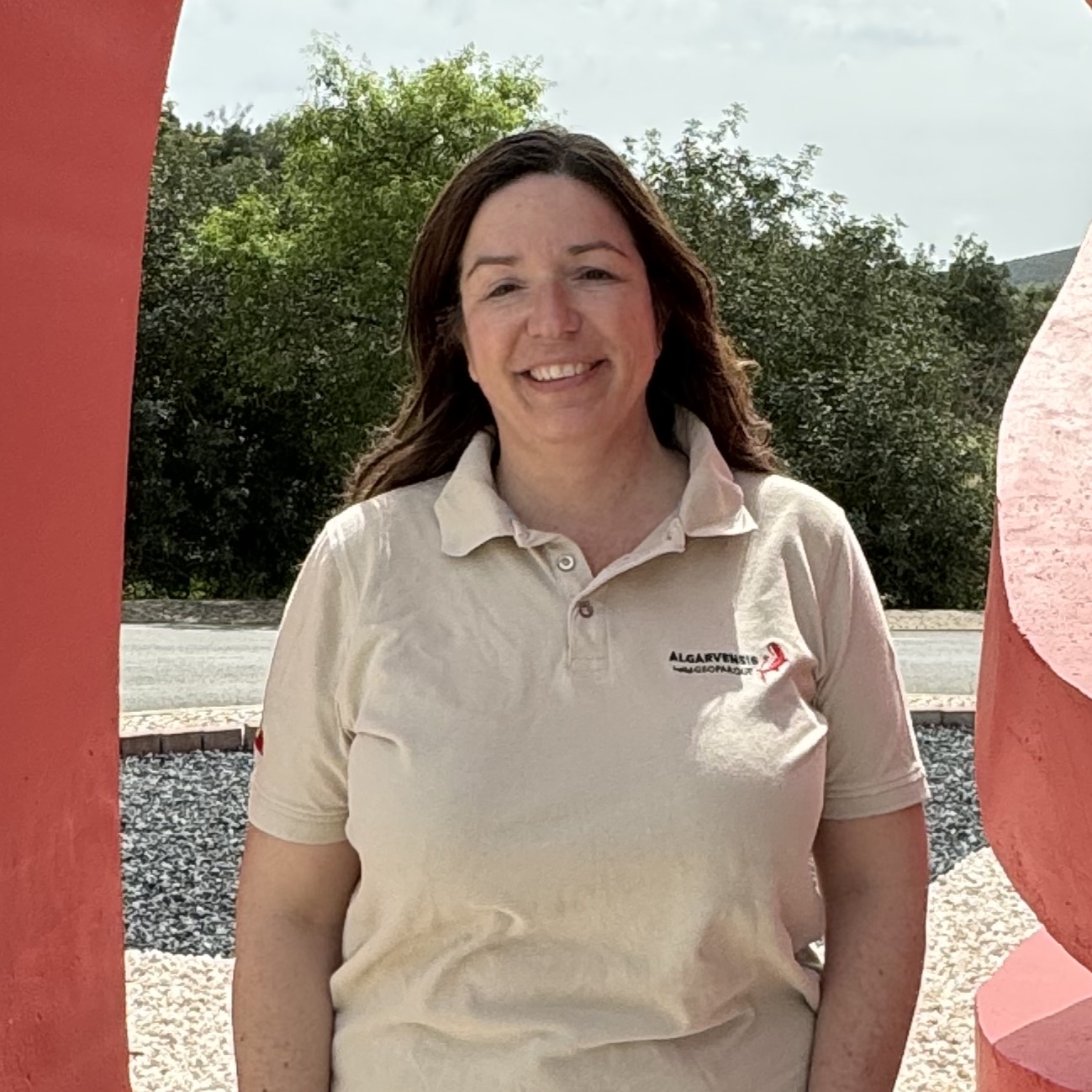
Andreia Pintassilgo . Communication Design (Areas of specialization: Communication for Tourism and Culture, Commercial Communication and Marketing) / PhD student in Digital Media-Art (Research area: Cultural and Intangible Heritage) / Education / Agenda 2030 / Local Development / Creative Industries.
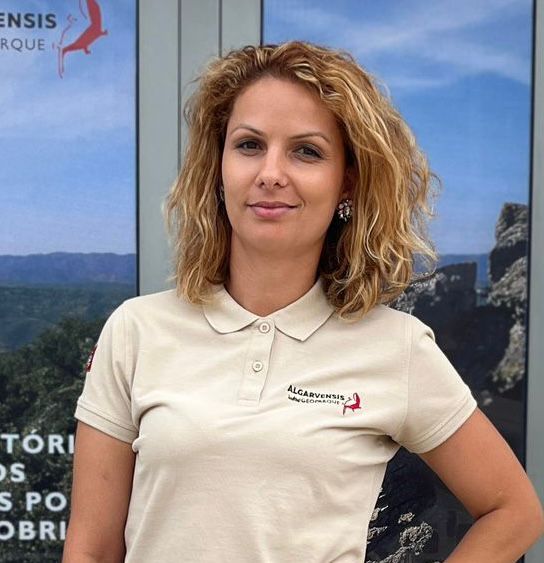
Fiordalisa Chirilã . Information and education - Senior Technician, Education and Training, University of Algarve, Faculty of Human and Social Sciences
Scientific Council
The Scientific Council brings together specialists, researchers and university professors from various fields of knowledge in geology and biology, reflecting the high diversity, complexity and richness of the territory of the GeoparK Algarvensis.
Our Advisors are responsible for sharing their scientific wisdom with the team, recommending places of interest for the development of the GeoparK project, proposing innovative scientific approaches, as well as disseminating the Geopark Algarvensis and creating new knowledge through academic and research projects related to the territory of this Geopark.
Alexandre Andrade, geologist engineer from the Coimbra University, with complementary training at the Algarve University in the field of Safety at Work and at the Catholic University of Lisbon in Business Management.
He focused his activity in tunnels, in the exploration of aggregates and in underground mining, studying these structures in the area of geotechnics and neotectonics. He was a professor of Geology at the Algarve University. He is co-founder of Tech Salt S.A., being COO in the rock salt mine, Campina de Cima, in Loulé.
Recently he developed projects in the area of preservation and enhancement of the mining and geological heritage.
"Geopark Algarvensis a territory, in which we preserve the history of the Earth's evolution".
Ana Sofia Reboleira is a teacher in the Department of Animal Biology at the Faculty of Sciences of the University of Lisbon. She has a PhD in Biology, a master's degree in Ecology, Biodiversity and Ecosystem Management and a degree in Biology from the University of Aveiro. She has been a lecturer at the University of Copenhagen, a visiting lecturer at Macquarie University in Sydney, Australia, and a visiting lecturer at Harvard University in the USA.
She was honoured with the Villum Young Investigator Award, for exceptionally talented young researchers in technical and natural sciences in Denmark; and recently with the Belmiro de Azevedo Foundation Award 2023, in the area of Conservation, restoration and monitoring of biodiversity in Portugal. The author of more than a hundred scientific publications, she leads the Underground Ecology research group at the Centre for Ecology, Evolution and Environmental Change (cE3c). His work has revealed a new global hotspot of underground biodiversity in Portugal. He has described more than 70 new species and genera for science, and has led expeditions on 5 continents.
"The Algarvensis Geopark area is home to a world-class underground biodiversity hotspot. It is the geodiversity of the Algarve barrocal that provides the refuge for this great variety of endemic species and is the hallmark of this territory's natural identity."
Paleontologist. Graduated from Moscow State University in 1986. PhD from the University of Lisbon where he coordinates the discipline of Paleontology. Researches the Paleobiogeography of the Mio-Pliocene Atlantic Mediterranean molluscs. He is the author of more than 150 scientific and dissemination articles published in national and international journals. He is the co-author of more than 100 new species of Miocene and Pliocene gastropods. He promotes palaeontology and geodiversity, focusing on aspects that go beyond geology, establishing bridges between the natural and social sciences.
"Diversity is a fundamental value and its conservation and enhancement is a primary objective. In the aspiring territory of Geopark Algarvensis, exceptional geodiversity, outstanding values of biodiversity and cultural diversity are combined".
Born in France, Cristina Veiga-Pires has a degree in Geology from the Université Paris-XI Orsay (France) and a PhD in Environmental Sciences from the Université du Québec in Montreal (Canada). Since 2005, she has been an Assistant Professor in the Department of Earth, Marine and Environmental Sciences at the Faculty of Science and Technology of the University of the Algarve. Her research focuses mainly on palaeoceanography, palaeoclimatology, sedimentology, submarine groundwater discharge and karst systems.
In 2014, she accepted the invitation to take on the role of Executive Director of the Algarve Science Centre, leading initiatives focused on Science Mediation, Participatory Science and Inclusion.
She is a member of the research team at the Marine and Environmental Research Centre - CIMA, actively contributing to AMAL's Intermunicipal Global Change Adaptation Plan. She has been a member of the Board of Directors of this research centre at the University of the Algarve since 2023.
From 2019 to July 2024, she was the Scientific Coordinator of the aspiring Geopark Algarvensis. She is currently a member of the Scientific Council of the aspiring Geopark Algarvensis as a Scientific Advisor. Throughout her career, she has supervised a dozen master's degrees and two doctorates, contributing to around 35 scientific articles and 12 book chapters.
She is a retired Associate Professor at the University of the Algarve, with a PhD in Geology, specialising in coastal morphology, sedimentology and landscape evolution along the Quaternary.
She carries out her research activity at the Centre for Marine and Environmental Research (CIMA), supervises master and doctoral theses and integrates research project teams. So far, she has published numerous scientific articles and book chapters. The dissemination of the geological heritage is one of the components of her scientific activity.
"The aspiring Unesco geopark, Geopark Algarvensis, celebrates the integrated knowledge of the geological, ecological and cultural heritage".
Geologist with a specialization in geophysics, he is an Assistant Professor at the Department of Earth Sciences of the Faculty of Sciences and Technology of the University of Coimbra, Portugal.
His main area of research is paleomagnetism and rock magnetism integrated with a number of other geological tools including mineralogy, sedimentology, stratigraphy and geochemistry. His research focuses on global climate change in the history of the earth, such as the Cretaceous-Tertiary crisis, and the environmental effects of major igneous provinces such as the Deccan lavas in India. More recently, he has studied the magnetic recording of speleothems in the Algarve region.
Full Professor at the University of Aveiro, since 2002, in the Department of Geosciences, he has a PhD in Geosciences (Mineralogy) with Agregate Title (Clays) by the University of Aveiro, in 1994 and 2000, respectively. He is Director of the GEOBIOTEC Research Centre, since its creation, in July 2007, and Director of the PhD Program in Geosciences since 2017.
After a brief passage (1984/85) in the private sector of public works, as an engineering geologist, he developed an academic career at the University of Aveiro from 1986 to the present. At the University of Aveiro he has been carrying out scientific activity in the field of mineral resources, coastal and marine geology, geotourism and geopatrimony, geological risks, medical geology and environmental impacts.
"The Algarve is one of the regions of Portugal with the most complete and best exposed geological record, which has therefore been the focus of attraction of many national and foreign researchers, who have developed/develop important studies of various geological disciplines (geodynamics, paleontology, stratigraphy, sedimentology, coastal and marine geology, hydrogeology and geological resources, to name but a few). It has geosites that combine appreciable beauty with a very relevant heritage significance, which it is important to preserve, in an approach of integration with other natural heritage assets".
He has a degree in History and a Master's degree in Archaeology and is a PhD finalist in the cultural heritage associated with the karst caves of the Algarve.
He started his professional activity in the then IPPAR (1996), keeping himself at the service of entities responsible for the protection of cultural heritage. He has been carrying out speleological research in Portugal since 1989 and, from 2016, also in Mozambique. He has published research in archaeology, paleontology and speleology. In 2016 he was awarded the Estácio da Veiga Prize for Archaeology and Human Evolution by ICArEHB (UAlg).
João Pedro Pereira da Costa Bernardes has a degree in History with a specialisation in Archaeology from the University of Coimbra (1985), a PhD in History with a specialisation in Archaeology from the same University (2002) and a joint degree in Archaeology from the University of the Algarve (2012).
He was a lecturer at the University of the Azores between 1992 and 1997 and is currently a full professor at the University of the Algarve, where he is responsible for teaching subjects on undergraduate, master's and doctoral programmes in the areas of Cultural Heritage and Archaeology. Since 2002, he has held the position of Course Director of the degree programme in Cultural Heritage and Director of the Department of History, Archaeology and Heritage at the University of the Algarve on several occasions. He is currently Director of the PhD programme in Heritage Studies at the same university.
He has directed archaeological excavation campaigns, coordinated various research projects, some of them international, and supervised several postgraduate dissertations. He has taken part in dozens of master's and doctoral exam juries all over Portugal and abroad, and was a member of the History and Archaeology assessment panel for doctoral and post-doctoral projects applying for scholarships from the Foundation for Science and Technology (2010-2012; 2019-2020). He was responsible for coordinating the Archaeological and Built Heritage section of the last Regional Spatial Planning Plan for the Algarve.
PhD in Geology from the University of Lisbon where he is Associate Professor in the Department of Geology of the Faculty of Sciences.
His scientific career has been developed in the geology of volcanic regions, mainly in the Atlantic archipelagos (Azores, Madeira, Canaries, Cape Verde and S. Tomé), but also in continental Portugal, Morocco and Brazil. Study themes include Neotectonics and Palaeosysmology, Volcanic Stratigraphy and Geological Cartography.
He is the author of about 60 articles in international scientific journals.
"In the geopark Algarvensis we can find evidence of the beginning of the opening of the Atlantic 200 million years ago".
He has a Master's degree in Economic and Applied Geology from the Faculty of Sciences of the University of Lisbon (1993) and a PhD from the Centre d'Hydrogéologie de l'Université de Neuchâtel. He has been a professor at the University of Algarve since 1997. He has been continuously participating in technical and scientific projects in the geosciences area for more than 30 years and has regularly oriented post-graduate training (masters and doctorates). He is the author of more than a hundred national and international publications in the field of hydrogeology and water management.
"The mesocenozoic sedimentary basin and the paleozoic rocks found in the Algarve territory present a profusion of contrasts that need to be understood by those who wish to find justification for the beauty of this region".
Associate Professor at the University of Algarve, PhD in Biology at the University of the Algarve, she has developed scientific activity and teaching in studies of plant ecophysiology under conditions of environmental stress typical of Mediterranean regions. She is curator of the Herbarium of the University of Algarve -ALGU and, within the context of these functions, has participated in various actions to promote knowledge and public awareness of environmental issues, particularly those involving the floristic heritage of the Algarve.
"The territory of the future Geopark Algarvensis boasts not only the particular geological heritage, but also an ancestral humanized landscape, a mosaic of natural history and culture, science and imagination".
Manuela Guerreiro is an Integrated Researcher at CinTurs. Her academic training began with a Communication Sciences BSc degree (1994) with a Marketing specialisation at the current University of Lisbon. Her fascination with marketing, arts, heritage and culture led her to do a master's degree in Cultural and Heritage Management (2003), a partnership between the University of Algarve (UAlg) and the University of Paris-VIII. Her subsequent PhD in Economic and Business Sciences, in the scientific area of Management, specialising in Marketing, was completed in 2012, and, more recently (2024), the Habilitation in the same scientific area at UAlg is are important milestone. She began her academic career as a monitor during her postgraduate degree in Marketing (1996) at the School of Management, Hospitality and Tourism, UAlg. She is an Assistant Professor at the Faculty of Economics, where she coordinates the Marketing team. Drawing on these qualifications, she combines her research interests in marketing, arts/culture, and tourism, in a multidisciplinary approach to better understand tourists' behaviour and the hedonic and experiential dimension of consumption, notably from the perspective of the brand and the image of tourist destinations. These lines of research are drawn from diverse sources of inspiration and underpin her roles as a researcher and supervisor of master's dissertations and doctoral theses and as a leader or team member in national and international funded research projects. She published several book chapters and journal articles, including in Journal of Travel Research. They are also embedded in her Marketing teaching across bachelor, master and PhD degrees, her position as program leader in the Master of Marketing Management (since 2015), her role as a member of the Direction Board of PhD in Tourism (since 2022), and the Editorial Board of leading journals. She is proud to be a member of the CinTurs Executive Board, acting as Co-Coordinator since 2018.
Master in Applied Ecology, PhD in Environmental Sciences and Technology from the University of Porto), Coordinating Professor at the Higher Institute of Engineering of the University of Algarve where she is part of the Hydraulics, Water Resources and Environment Disciplinary Group of the Civil Engineering Department. She is Director of the Master's Degree in Urban Water Cycle, UAlg Member of the UNESCO Chair in Ecohydrology - Water for Ecosystems and Societies, Principal Researcher at CEiiA's CoLAB Smart and Sustainable Living and Researcher at the Marine and Environmental Research Centre (CIMA-ARNET). She is an expert for the National Agency for the Evaluation of Higher Education (A3ES). She was Deputy Director of the International Centre for Coastal Ecohydrology (ICCE-UNESCO) and President of the Technical-Scientific Council of the UAlg Higher Institute of Engineering between Oct 2015 and Sep 2019. In 1999 she founded the UAlg Sanitary Engineering Laboratory and is responsible for its accreditation until 2019. He works in Integrated Water Management.
His current research interests are in climate change adaptation strategies in cities, mainly using phytotechnologies for carbon sequestration, pollutant remediation and water management in an ecohydrological approach. In this field, she conducts research into alternative water sources such as ApR (reuse of treated wastewater) and desalination. She is the author of numerous scientific articles published in international peer-reviewed journals and at national and international conferences, as well as book chapters. She is a frequent guest speaker at various national and international events, and a reviewer for several Web Of Science journals in these scientific fields, in which she also has extensive experience in supervising master's theses.
‘The co-creation of a Territory... where Nature and Humanity unite past and present to design the future!’
Full Professor at the University of the Algarve. She has a PhD in Marine Ecotoxicology from the University of Reading (UK) and in Oceanography from the University of the Algarve. She obtained an Aggregate Degree in Earth, Sea and Environmental Sciences from the University of the Algarve. She was Director of the Faculty of Marine and Environmental Sciences and of the Marine and Environmental Research Centre (CIMA) and a member of various bodies at the University of the Algarve. She is currently a member of the Group of Experts of the United Nations Regular Process for the Assessment of the State of the Marine Environment including Socio-Economic Aspects and is a member of the Portuguese Commission for the Decade of Ocean Sciences for Sustainable Development and the Portuguese Committee for UNESCO's Intergovernmental Oceanographic Commission.
He also sits on the Board of the Navy's Strategic Studies Centre, is a Corresponding Member of the Arts, Letters and Sciences Class of the Navy Academy and is a member of the Monitoring Unit of the Portuguese Sea and Atmosphere Institute (IPMA).
He has a degree in Agricultural Engineering from the University of Évora and a Master's degree in ‘Agri-Food Management’, certified by the Ecole Nationale Supérieure Agronomique de Montpellier in France. He was Regional Director for Agriculture in the Algarve, Director-General for Rural Development and Chairman of the National Monitoring Committee for the LEADER II Community Initiative between 1996 and 2000. He was Vice-President of the Algarve Region Coordination Commission, Manager of the Programme for the Revitalisation of Low Density Areas in the Algarve Region (Axis 2) of PROALGARVE, Manager of the INTERREG III Programme - Algarve, Alentejo, Andalusia and Vice-President of the Agriculture Group of the Intramediterranean Commission of the Conference of Peripheral Maritime Regions, between 2000 and 2003. He was a Member of Parliament in the X, XI and XII Legislatures, in the Committee on Agriculture, Rural Development and the Sea between 2006 and 2015. He was a member of the World Bank Parliamentary Network in 2010 and 2011.
He worked at REPER - Portuguese Representation to the European Union as Agriculture and Sea Coordinator between 2007 and 2009, and chaired the European Union's Special Committee on Agriculture during Portugal's Presidency of the European Union in the second half of 2007. He was the 1st Executive Secretary of AMAL - Association of Municipalities of the Algarve in 2016 and 2017. He was Secretary of State for Forests and Rural Development between July 2017 and October 2019. He is a Visiting Assistant Professor at the University of the Algarve - Faculty of Science and Technology and a Consultant in the areas of Regional Development, Environment, Agriculture and Forestry Public Policies. He is the Coordinator of the External Team supporting the ‘Forest, Biodiversity and Rural Development Sustainability Agenda for the Municipality of Loulé’.
‘To think of the opportunity that the Algarvensis Geopark can open up as a structuring and mobilising element for the entire territory of the interior of the Algarve is to recognise the potential of natural capital for creating value and to build an innovative matrix of public policies that encourage new demands and shape new environmental markets.’
Associate Professor at the Nova University of Lisbon he is dedicated to the paleontology of dinosaurs (bones, eggs and footprints) and other fossil vertebrates. He is the author or co-author of over 200 publications (book chapters, scientific papers and conference summaries). In 2009 he discovered the important paleontological deposit of Penina (Loulé) with the Metoposaurus algarvensis and phytosaurus over 200 million years old. This Geopark initiative began with his recommendation and instigation to the mayor of Loulé on 15 April 2018. He is an Associate Researcher at AMNH - American Museum of Natural History (New York) and the Lourinhã Museum.
"The Aspiring GeoPark Algarvensis comprises a territory of immense geological and paleontological value, whose high representative is the amphibian Metoposaurus algarvensis, a unique species in the world, which lived at the beginning of the dinosaur era. It is also a sustainable human development strategy based on palaeontology and other sciences. It is wonderful to be part of this initiative".
Full Professor at the University of the Algarve, with a PhD in Quantitative Methods Applied to Economics and Management from the University of the Algarve, she has been teaching in the areas of data analysis and research methodologies. Her research focuses mainly on the relationship between tourism development and the quality of life of residents in the places visited. She has been coordinator of the Research Centre for Tourism, Sustainability and Well-being at the University of the Algarve since 2018 and Pro-Rector for the European University of the Seas Alliance (SEA-EU) since December 2022.
‘The stones are alive in the territory of the future Geopark Algarvensis, a natural laboratory full of history (and stories) to investigate and boost what can be truly sustainable tourism development in the Algarve region.’
Since 1998 he has worked as an archaeologist in the management of archaeological cultural heritage, namely in its safeguarding and research, but also in heritage dissemination and education. He worked for fifteen years in the Algarve and is currently with the National Centre for Nautical and Underwater Archaeology (CNANS) of Património Cultural, IP. He is also co-responsible for archaeological research projects carried out in the Baixo Alentejo and Algarve as a researcher at the UNIARQ R&D unit (Archaeology Centre of the Faculty of Letters, University of Lisbon). His research centres on the Iron Age and south-western writing in Portugal, particularly in the territories covered by the municipalities of Loulé and Almodôvar. He has also developed projects linked to maritime and underwater archaeology, in particular the ‘Quarteira Submersa’ project in Loulé.
As a result of this work, he has been part of more than thirty research projects as director and co-director, is the author and co-author of more than fifty scientific articles in national and international scientific journals and congresses, has collaborated occasionally as a lecturer at Universidade Nova de Lisboa and Universidade do Algarve, and has participated as technical, scientific and curatorial commissioner in numerous exhibitions in Municipal and National Museums, having received three awards and three honourable mentions from the Portuguese Museology Association, namely with the exhibition "LOULÉ. Territories, Memories and Identities".
"The territory aspiring to become the Algarvensis Geopark has exceptional geological, natural, heritage and cultural values. The diversity of its cultural landscapes, moulded yesterday, today and tomorrow by those who live here, must therefore be designed with these people and for the people."
Associate Professor at the Department of Earth Sciences of the University of Coimbra; Member of the Executive Board of the Earth Sciences Research Centre - Dom Luiz Institute; Elected member of the Scientific Council of the Faculty of Science and Technology of the University of Coimbra; Coordinator of the Computational Geosciences Laboratory of the Department of Earth Sciences of the University of Coimbra.
Graduated in Geology from the University of Coimbra (2002), Master in Geography and Earth Sciences from Brunel-West London University, PhD in Geology from the University of Lisbon (2012) with the theme ‘Sedimentological signatures of extreme marine inundations’, Post-doctoral studies at the University of Lisbon, the United States Geological Survey and the University of Dundee (Scotland). Member of the Editorial Committee of the journals Sedimentary Geology, Marine Geology and Discover Geosciences (Springer) Coordinator of the Master's Programme in ‘Social Dynamics, Natural and Technological Hazards’ at the University of Coimbra.
He has supervised more than 30 undergraduate dissertations, 20 master's theses, 5 doctorates and 4 post-doctorates. He is the author of more than 70 indexed articles on the identification of tsunami and storm deposits, studies of sedimentary provenance, image analysis, risk perception, evolution of the Holocene palaeoenvironment, microtextural analysis, etc.... He has participated in more than 30 research projects linked to natural hazards and their geological signatures. He has taken part in 9 oceanographic cruises, leading 3. Over the last two decades he has focussed his scientific work on combining marine and continental records of extreme events, particularly storms and tsunamis.
"The Algarvensis Geopark is unique in its heritage. In the case of catastrophic events, we have an extraordinary record of an event that marks the history of Portugal and the world: the earthquake and tsunami of 1 November 1755. In the areas of the Algarvensis Geopark we find various geological evidences of this event and we can find its signatures both on land and at moderate depths. It is these geological remains that bring us the past and help us prepare for the future and as such they need to be preserved and known"
Born in Lisbon in 1959, he studied geology at the Institute of Geology and Mines of Leningrad (USSR) and at the Faculty of Sciences of the University of Lisbon, where he graduated in 1987. He did his Masters in Structural Geology and his PhD in Geology at Imperial College, United Kingdom.
He charted the internal structure of the Loulé salt diapir (1990) and studied the tectonic evolution of the Algarve Basin (1998).
He investigates mainly:
- marine geology of the Portuguese shore,
-the neotectonics of the Africa-Iberia plates boundary in the Atlantic Ocean
- the alkaline magmatism of the Cretaceous of the Portuguese West Bank .
"From a geological point of view, the territory of Algarvensis comprises a registry that represents the geological history which witnesses the passage of the formation of the supercontinent Pangea, its rupture and volcanism, the appearance of the amphibians precursors of dinosaurs, the formation of lakes and saline inland seas (of the East African rift and Dead Sea type), the collision of Africa and Eurasia and the formation of the Atlantic Ocean and the opening of the Strait of Gibraltar. Of course... not everything is obvious to the eyes.... The essential is invisible to the eyes.... At first sight".
He is an Assistant Researcher at the National Laboratory of Energy and Geology (LNEG), where he is the Coordinator of the Geology, Hydrogeology and Coastal Geology Unit. He has a PhD in Internal Geodynamics - "Neotectonics of the Algarve Region" - from the Faculty of Sciences of the University of Lisbon.
He has developed research in the fields of Neotectonics and Seismotectonics, especially in the Algarve region, as well as in Geological Cartography of the Cenozoic. He is co-author of several scientific papers published or presented in national and international congresses.
"The Barrocal is a natural water dam."
Stefan Rosendahl, born in 1956, geologist and PhD since 1985 in Natural Sciences (Geology and Paleontology, University of Stuttgart; thesis: The Coral Facies of the Upper Jurassic of the Algarve).
Professor in Portugal: University of Beira Interior, Escola Superior de Arte e Design of Caldas da Rainha, Instituto Politécnico of Tomar, University Lusófona of Humanities and Technologies, and Instituto Superior D. Dinis.
Currently he’s researching Geotourism, Cultural Tourism and Natural and Cultural Heritage and collaborating with the Living Science Centres of the Algarve region.
"Do you only know the beaches? The Territory Algarvensis has more to offer!"
Retired Full Professor at the University of the Algarve specialising in alteration phenomena and surface geochemistry.
He investigates the processes of sedimentary dynamics and geochemistry and the stratigraphy of the Quaternary. He coordinated the Marine and Environmental Research Centre (CIMA) for 18 years. He was Visiting Professor at the University of Brussels (VUB), Assistant Professor at the University of Trás-os-Montes e Alto Douro in Vila Real and worked for the government of Guinea Bissau. He has coordinated 12 research projects. He has oriented 10 PhD theses and 18 MSc theses. He has published 65 scientific articles and 6 book chapters.
"A fascinating chronicle of natural processes of singular beauty"
Algarvensis Association
General Assembly
Direction